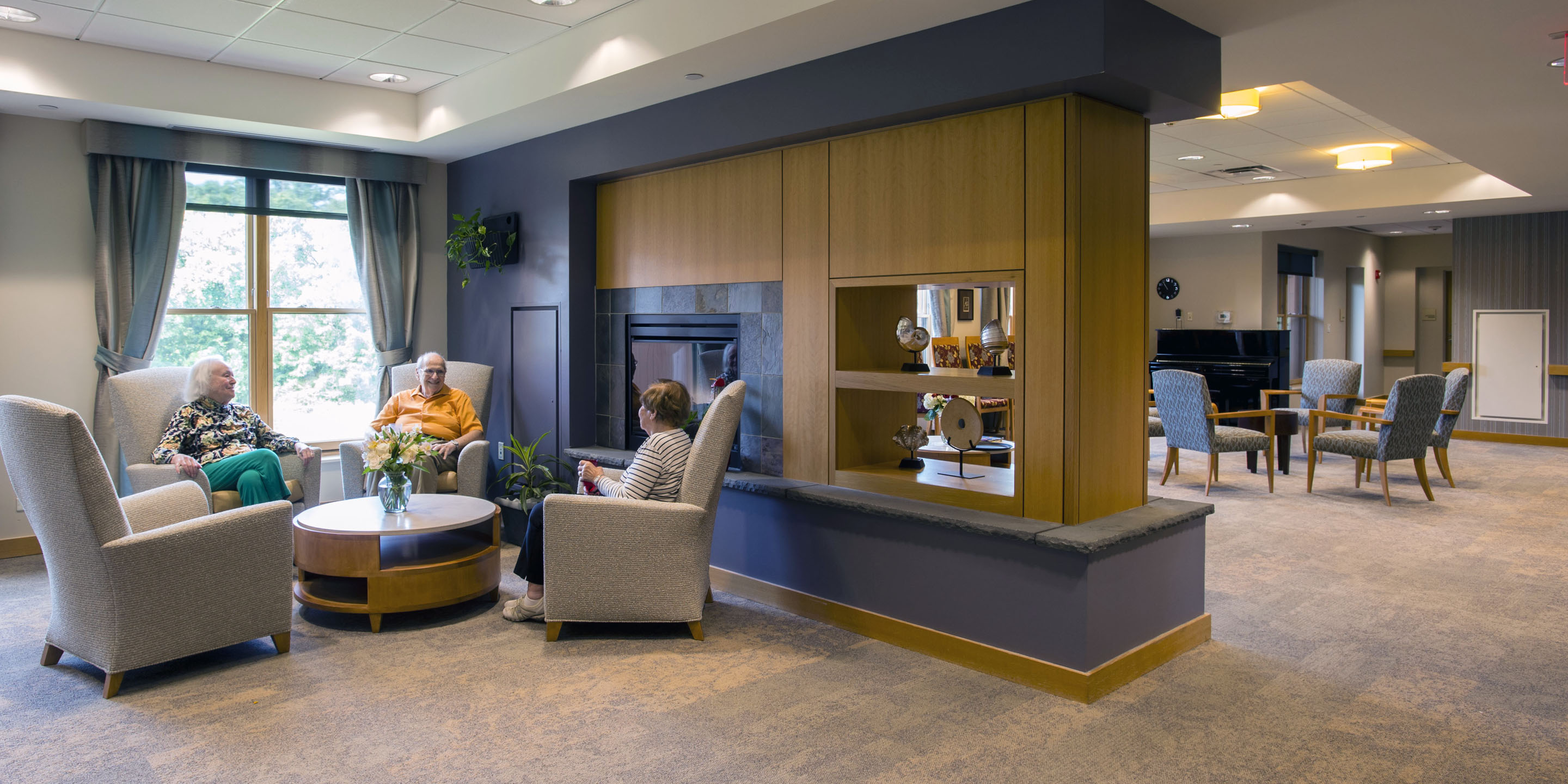Charlotte Memory Care: Safe and Secure Setting for Elders
Charlotte Memory Care: Safe and Secure Setting for Elders
Blog Article
Producing a Safe and Encouraging Setting: In-Home Memory Treatment Basics
Developing a nurturing and secure setting for individuals calling for at home memory care is vital to their health and top quality of life. From making sure security within the living area to utilizing effective interaction methods and implementing memory-friendly style components, there are necessary parts that add to an alternative treatment technique. By concentrating on developing a helpful ecosystem that deals with the distinct demands of those with memory disabilities, caregivers can dramatically enhance the daily experiences of their loved ones.

Safe Living Setting
Developing a secure and hazard-free living environment is paramount when providing at home memory care for people with cognitive impairments. Guaranteeing the safety and security of the specific with memory loss is critical to stop mishaps and promote a feeling of health.
In addition, using technology such as motion sensing units and alarms can signal caregivers if the individual wanders or is in distress. By focusing on security procedures and getting rid of possible threats, caretakers can give a supportive and protected atmosphere for people with cognitive impairments receiving in-home memory treatment.
Effective Interaction Methods
Implementing tailored communication strategies is necessary in fostering purposeful communications with people with cognitive impairments in the context of at home memory treatment. Efficient communication plays a critical function in producing an encouraging environment that enhances the well-being and high quality of life for individuals with memory issues. When interacting with a person experiencing cognitive decrease, it is necessary to utilize easy and clear language, preserve a calmness and favorable tone, and provide visual signs to help understanding.
One key approach is to exercise energetic listening, revealing compassion, perseverance, and regard throughout conversations. Non-verbal signs such as faces and body language can also aid convey understanding and assistance. Additionally, making use of reminiscence treatment by utilizing or going over past experiences music and art can touch right into lasting memories, boosting and stimulating connections interaction.
Moreover, including regular routines and constant interaction patterns can offer a feeling of familiarity and safety for people with memory problems. By executing these communication techniques, caregivers can develop significant links and advertise a sense of convenience and trust in the in-home memory care setup.
Memory-Friendly Design
Given the value of developing a supportive environment for people with memory problems through efficient interaction approaches, the consolidation of memory-friendly design components in the home ends up being imperative in maximizing their daily experiences and general health. Memory-friendly layout concentrates on improving safety and security, convenience, visit the website and freedom for people with cognitive problems. Easy modifications can make a substantial distinction, such as using contrasting shades to enhance visibility and decrease complication, incorporating clear signs to help navigating, and reducing clutter to avoid sensory overload.
Incorporating acquainted components from the individual's past, such as preferred items or individual pictures, can evoke positive memories and develop a feeling of knowledge. By incorporating these memory-friendly design elements, caretakers can supply a encouraging and risk-free living room that enables people with memory problems to keep their self-reliance and high quality of life. Charlotte Memory Care.
Daily Regimen Preparation
When creating an everyday regimen for people with memory problems, careful preparation is vital to support their cognitive function and general wellness. Developing an organized routine can aid minimize stress and anxiety, disorientation, and confusion often experienced by those with memory problems.
Flexibility is key, as some days might call for adjustments based on the person's mood and power levels. Consistently reviewing and adjusting the everyday routine will help guarantee its performance in promoting a positive and comforting setting for people with memory difficulties.
Assistance System Application
Establishing a durable network of helpful individuals plays a critical function in enhancing the quality of treatment and health for people requiring memory assistance. Household members, close friends, medical care experts, and neighborhood resources can all add to developing a solid support group. Communication amongst these people is vital to make certain that the requirements of the individual with memory challenges are fulfilled successfully.
Member of the family are usually the main caretakers and develop the backbone of the support group. They offer day-to-day care, psychological support, and companionship. When needed to avoid fatigue and guarantee the ideal possible treatment for their liked one., it is essential for household participants to seek help and respite.
In addition to family anchor members support, including medical care professionals such as therapists, nurses, and physicians can give specific care and support. These specialists can offer important insights, medical suggestions, and assistance in managing the individual's condition.

Verdict
Finally, creating a secure and supportive environment for individuals with memory care needs is important for their wellness. By developing a risk-free living atmosphere, using efficient communication techniques, integrating memory-friendly style aspects, planning everyday image source regimens, and carrying out a solid assistance system, caretakers can assist improve the lifestyle for those with memory loss. These necessary components function with each other to produce a nurturing and empowering environment that advertises independence and enhances total lifestyle.
Producing a safe and hazard-free living environment is paramount when giving at home memory treatment for people with cognitive problems. By focusing on safety and security procedures and eliminating potential threats, caretakers can offer a supportive and safe and secure atmosphere for individuals with cognitive problems getting at home memory treatment.
Establishing a robust network of supportive people plays a pivotal duty in improving the quality of treatment and well-being for individuals requiring memory support - Charlotte Memory Care. Interaction among these people is vital to ensure that the requirements of the specific with memory challenges are fulfilled efficiently

Report this page